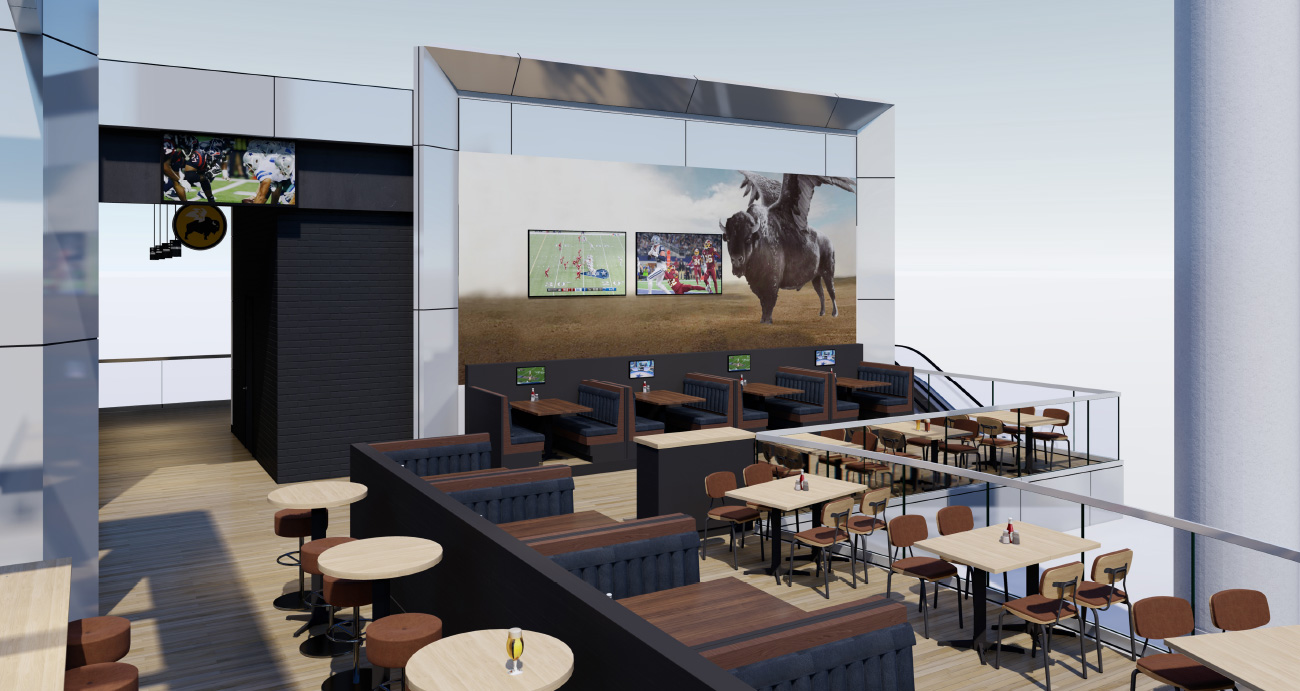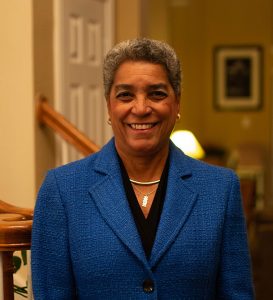

It was an atypical but adventurous journey that led Rosalyn (Roz) Mallet to operate restaurants in airports as an ACDBE. When she founded her company, PhaseNext Hospitality (PNH) in 2009, she brought more than 20 years of high-level corporate experience including as CEO of Caribou Coffee, COO of La Madeleine, and a Senior VP for TGI Fridays.
That experience readied her to take the plunge into independent entrepreneurship and while many daunting hurdles caused challenges along the way, she never let them derail her dreams.
Roz is an Areas ACDBE subtenant at Minneapolis-St. Paul International airport and owns 10 restaurants (five in airports) at various locations and is a franchisee of several major brands. In the following interview, she tells how she got into the business, how she overcame the struggles, and reveals her most admired Black American.
What made you decide to open your first restaurant in airports?
During the great recession in 2008, I was attracted to the idea of a captive audience; I didn’t want to do traditional growth as I started my own business. I had been on the corporate side with TGI Fridays and Caribou and had been the franchisor for other businesses involved in airport growth. When I decided to do my own thing, I became a franchisee and the captive audience of airports was the driving force for my development plans. We were undergoing one of the worst recessions our country had ever experienced and many brands were contracting so launching a “street side” business just wasn’t feasible at the time.
I had enough experience in my corporate jobs to know how airports worked on the development side and because I’m an ACDBE with strong operating experience it gave me an opportunity to create a business to bid on my own.
Were you aware of all the challenges you would confront in airports vs. the street?
I was on a leadership team at TGI Fridays and was involved in identifying an ACDBE to do a joint venture with us at DFW so I understood some of the challenges of airports. What was important to me is I have a passion for operations. I started doing research on this segment of the restaurant industry and meeting with people experienced in the airport space to strategize how to get up and running as a franchisee.
The caveat about “I can do this on own,” is knowing what you do know and learning about what you don’t know. So I met a lot of people and created opportunities through those relationships, then bid as a subtenant. It took me five years to be successful in winning an RFP on my own.
What were the hurdles you faced and how did you overcome them?
I had to continue to fine-tune my development strategy. I spent time with airport concessions departments and talked to them about my strategy to get their feedback. I found mentors willing to share their knowledge and created rapport with the people that were going to be making decisions. I met with multiple prime concessionaire leaders to understand what they were looking for in an ACDBE partner.
Some of the learnings were that most ACDBEs don’t have a corporate operating background or experience running restaurants outside of airports. A lot of ACDBEs didn’t take on an operator role, but took on other roles as joint venture partners. I started to fine-tune my approach as I did more research and made more introductions. I determined that I preferred being a subtenant so that I could operate my franchised brands.
What struggles did you face as a woman of color in a male-dominated industry?
Throughout my career, I have tried not to be cynical about it. I just deal with the realities and try to get past those realities when they work against me. Most industries are male-dominated; part of choosing the ACDBE option was literally to help me get extra points as I moved into a segment of the restaurant industry that was dominated by large prime concessions businesses. The business is male-dominated and frankly as a person of color the program was effective but there were more limitations then than there are now; for instance, the net worth component was lower which meant that it was more difficult to raise money. Even the method that some of the RFP points were being granted was not conducive to having an ACDBE be independently successful in bids….the financial bids are heavily weighted to high percentage rent, which leaves a small to very little P&L margin. There have been adjustments in the segment of RFPs in the last several years.
Some of the steps I took were to build my reputation and credibility. I became very involved in the industry working with organizations like Women’s Foodservice Forum. I am a board member of the National Restaurant Association where I am a former chair of the board. The more I could create credibility in airports by virtue of the brands I had to offer, the more I could overcome some of the issues around being an African American woman. If well-known brands vetted and approved me as a franchisee, the airports had less reason to question my abilities.
Honestly, it was true then and still is today that it is much more difficult for me to raise capital than it is for a white male. That is still a reality and that means women have to work a lot harder at identifying investors. You need to create more relationships, spend more time talking to your bankers, being more insistent that they look at the full opportunity of what you bring.
When I won my first independent RFP, I made a big deal about that with my banks and investors. I can’t be just another name on an account. My first loan was an SBA loan because the program is specifically set up for people like me. After about nine months of looking for funding for my first project, SBA was the only way to get a loan until I had something open. Once I had a couple of stores open, I found a traditional loan from a regional bank.
The COVID pandemic made investors and banks even more cautious because our industry took a lot of hard knocks. In a lot of ways, it set everyone in the industry back. Still, minorities and women have to take extra steps and be more tenacious; look further than the first one or two people you meet to raise capital.
What tips would you offer to entrepreneurs starting on a similar journey?
Do a lot of strategic thinking and research the business model of the airport concessions business. Look at all of your options, Don’t rely on preconceived notions of what the airport space is like. Find a mentor or two who are willing to share their experiences and their network; you’re not in this alone. Attend conferences, go to the breakout sessions, ask questions, and find your niche in all of this.
